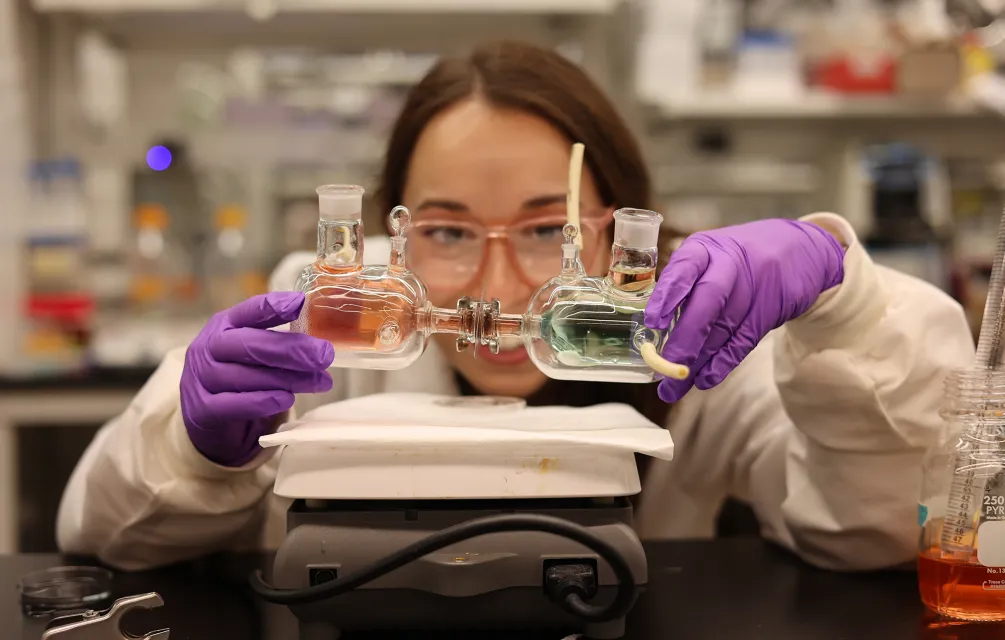Research Areas
Chemical & Environmental Engineering

Chemical Engineering
Yale's Chemical Engineering faculty lead groundbreaking research that address some of the most pressing challenges of our time. Our work is built on a strong foundation of chemical engineering sciences, encompassing biological and polymer sciences, complex fluids, advanced materials, energy and the environment, catalysis, and statistical thermodynamics and computation.
What sets us apart is our interdisciplinary approach and extensive collaborations. Our faculty members have established partnerships and joint appointments across Yale, including with the Biomedical Engineering, Chemistry, Materials Science, Applied Physics, and Mechanical Engineering departments, as well as the Environmental Engineering program. We also work closely with the Energy Sciences Institute at Yale West Campus, leveraging shared expertise to tackle complex problems in sustainable energy and environmental solutions. This collaborative spirit, combined with our cutting-edge theoretical modeling and practical applications, allows us to bridge the gap between fundamental science and real-world impact, driving innovation in chemical engineering and its applications across multiple industries.
Associated Faculty
Environmental Engineering
Yale's Environmental Engineering program stands at the forefront of tackling the world's most pressing challenges. Our faculty are pioneering innovative solutions across multiple fronts. From developing cutting-edge technologies to reduce human exposure to waterborne and airborne contaminants and pathogens, to creating novel materials for capturing greenhouse gasses and designing sustainable, green chemistry approaches. We're also unraveling the complexities of indoor and outdoor air quality, studying the microbiome of built environments, and investigating emerging pollutants in our ecosystems.
Yale's Environmental Engineering program is deeply integrated across the university. Our home in Chemical Engineering provides for a rigorous, molecular-level capabilities in developing technologies and processes, while our established collaborations and joint appointments with the Yale School of the Environment, School of Public Health, the Yale Center for Natural Carbon Capture, Yale’s Planetary Solutions initiative, and the connections of a world-class university bring a wide range of resources to solving environmental problems.
As we face growing environmental pressures, the breadth and depth of Yale’s Environmental Engineering program provides an outstanding educational opportunity to our graduate and undergraduate students and promise of a better environment.















